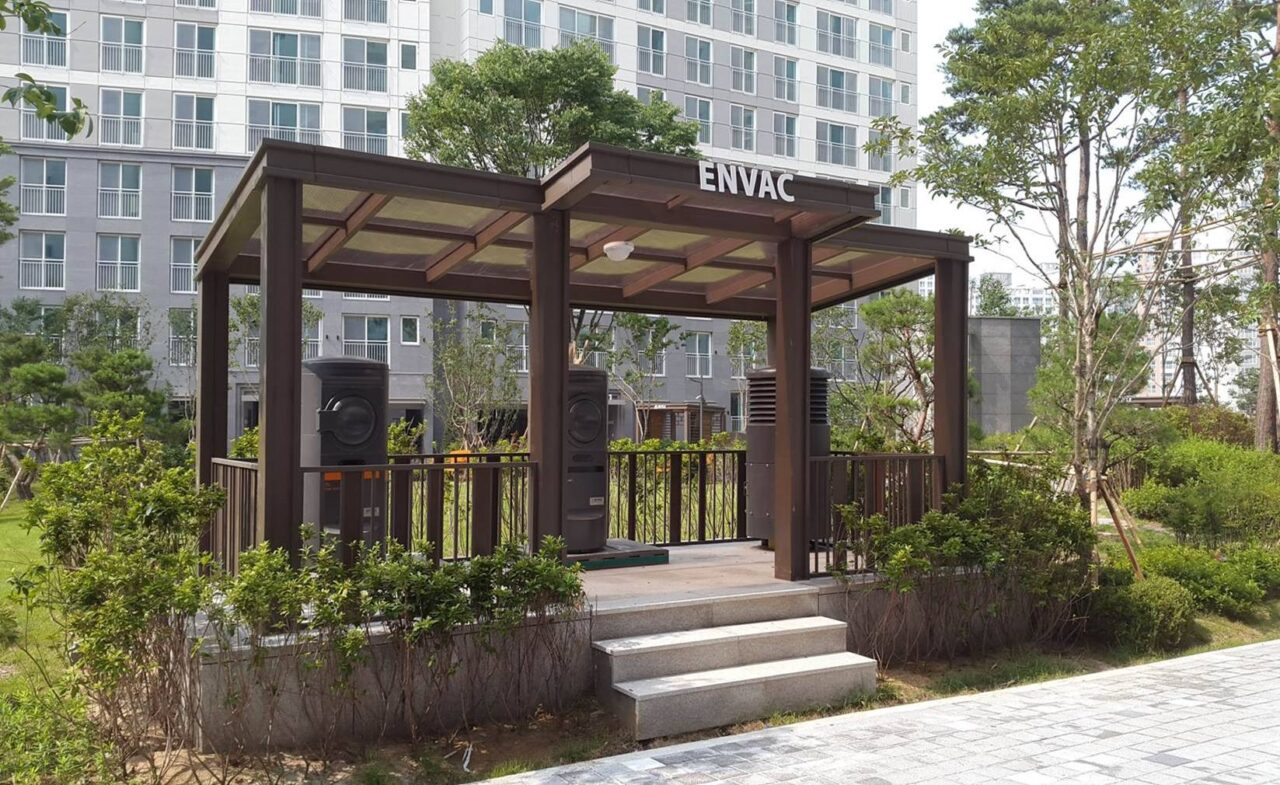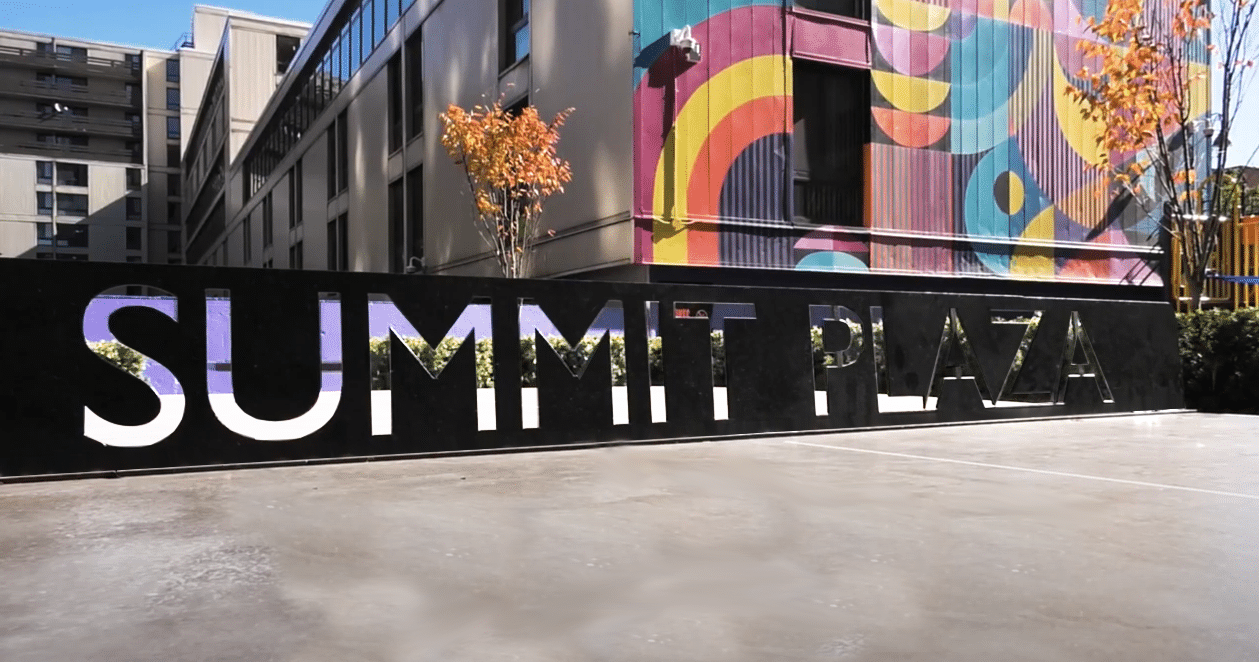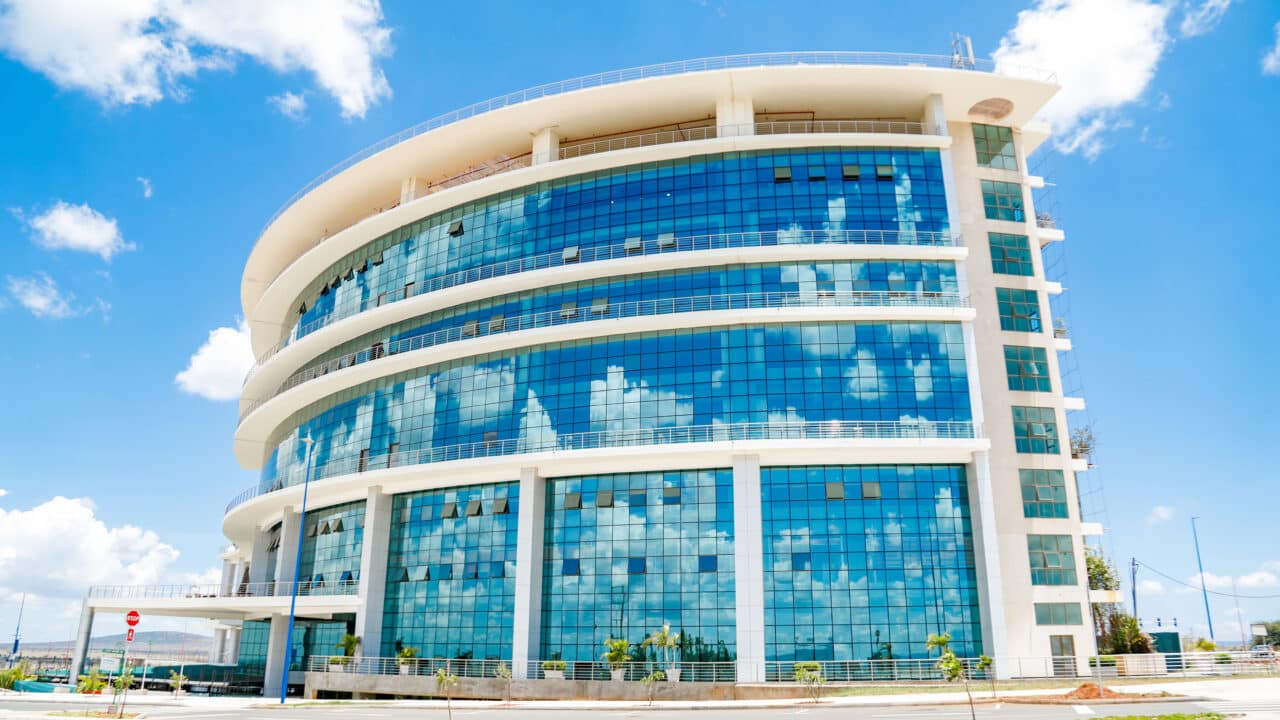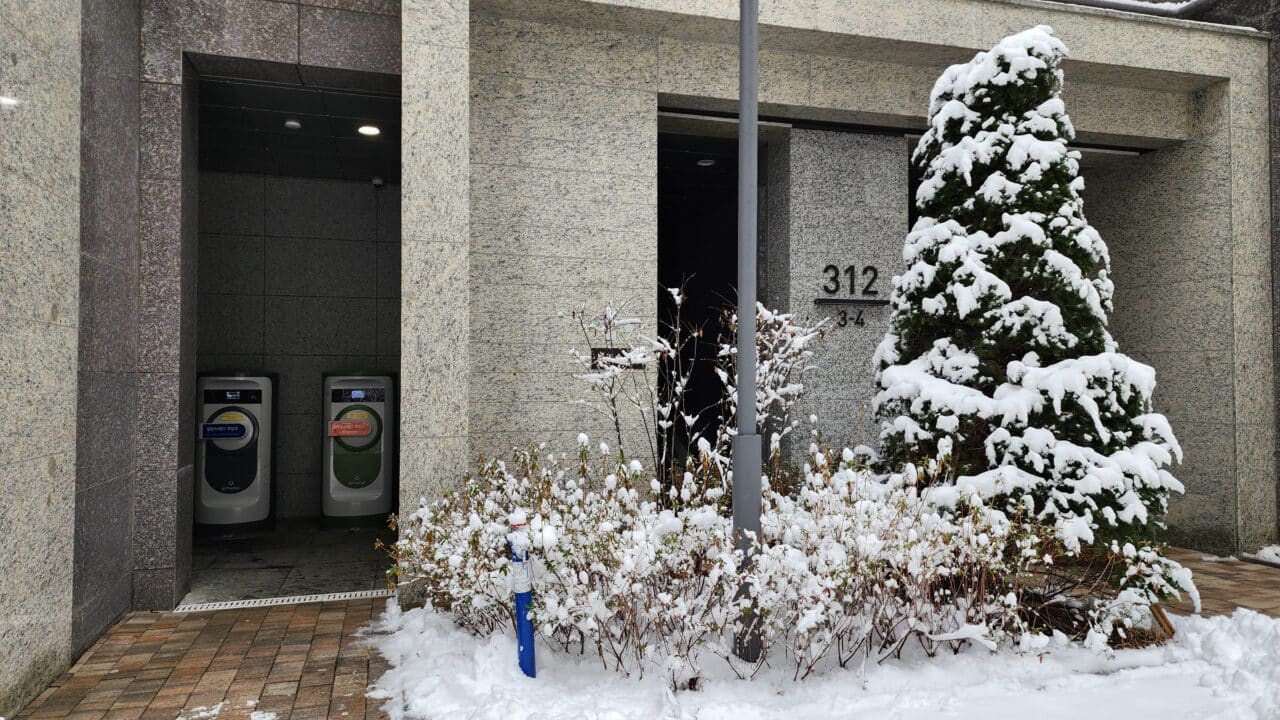140
tons/day
designed collection capacity
Sustainability, innovation and cutting edge environmental technology lie behind ambitious plans for the City of Sejong, a regeneration program made possible under South Korea’s future planning city banner status. Covering almost 73 km2 and combining striking architecture and innovative urban design features with wide-open living spaces and 400 km of bike tracks, Sejong city’s population is expected to increase from 30,000 people to 500,000 by 2030.
Its predicted density, in parallel with governmental plans to make Sejong the country’s second largest administrative city after Seoul, led to the decision to integrate Envac’s system within the fabric of Sejong city’s urban infrastructure.
tons/day
designed collection capacity
separate waste fractions
outdoor waste inlets
conveniently located across
the area for easy disposal
pipe network
for underground transport of waste from
buildings to collection stations

Working in partnership with South Korea’s Land & Housing Corporation, Envac designed a system that will cater for 200,000 households, a park, public buildings and 69 schools on the development’s completion in 2030.
With an underground pipe network spanning almost 188 km, close to 3,500 outdoor waste inlets and the capacity to handle 140 tons of waste each day on the project’s conclusion, the first phase of Sejong City’s Envac system launched in 2015 and has already become an integral component in ensuring that the city remains clean and attractive to its current population, 11,000 of which are civil servants.
Sitting alongside other pioneering technology such as solar panelled bicycle paths that supply energy to 1,800 households, Envac is a beacon of sustainability that has helped Sejong become a national showcase of modern urban excellence.
Envac also helps to deliver a sustainable environment by working in partnership with the city’s waste contractors, which use waste transported by the underground pipe network to supply material for bio- and methane-gas power plants.
Since the system became operational in 2015 it has:

Cities New Jersey, USA
Summit Plaza, situated in Jersey City, stands as New Jersey’s largest privately-owned Section 8 housing complex, accommodating over 1,200 individuals. This includes vulnerable populations such as long-term residents, elderly and disabled individuals, and families with more than five members, as defined by HUD. The Envac automated waste removal system was installed in 1972 and is still operating reliably today, effortlessly removing residential waste over fifty years later.

Cities Konza, Kenya, Africa
Konza Technopolis is one of Africa’s most ambitious smart city projects, leveraging technology to address urban challenges. By integrating Envac’s pneumatic waste collection system, the city is setting a new standard for clean, efficient, and sustainable urban living.

Cities Seoul, South Korea
The Heukseok Xi project exemplifies the seamless fusion of luxury living and sustainable urban development. By integrating cutting-edge waste management technology with premium residential features, the complex elevates the everyday lives of its residents and contributes to South Korea’s long-term sustainability goals.